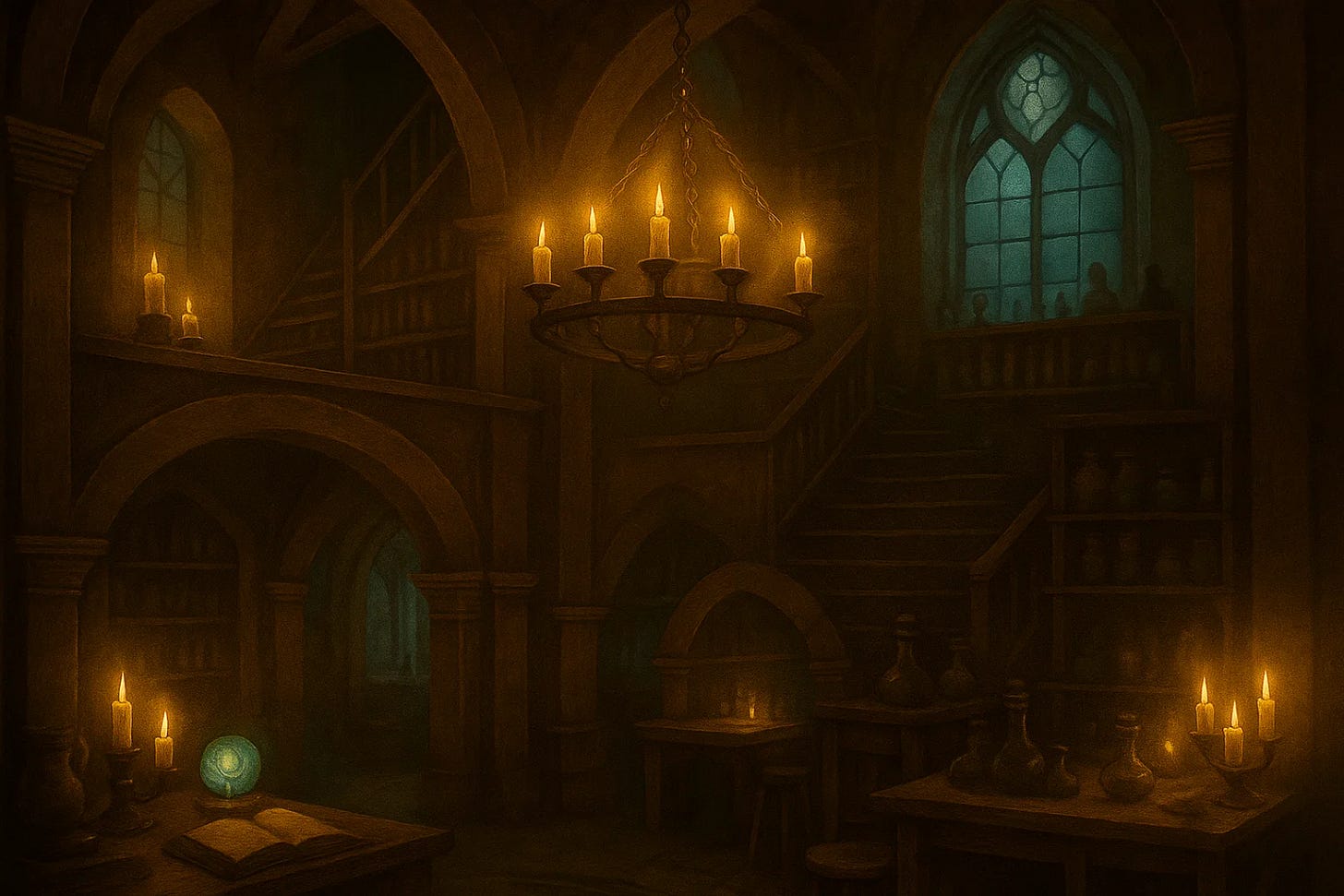Do what thou wilt shall be the whole of the Law.
Imagine that everyday awareness and experience of “who we are” takes place within a large house. The house itself is huge, made up of many rooms, and contains more than can be fully seen all at once. Our attention is like a spotlight that shines to illuminate some portion of the house, and it is only possible to pay attention to a small number of rooms at any given time. So we naturally prioritize what to focus on.
One can choose how and when to engage with internal and external environments, and with other people. Many rooms are well known and familiar, and other chambers are closed off. A person can ignore or abandon parts of the house for many reasons. Trauma, stress, self-deception, ignorance, and misunderstanding, these things color the way we see and feel. And it is natural to want to avoid pain and discomfort. There are 'dark corners' of the house to avoid because they are painful or taboo, and so we habitually look elsewhere and pretend that such places are not there.
Self examination is an important part of magical practice as a means of intentionally bringing these shadowy parts of ourselves to light. When one can look unflinchingly at who they are in this moment, when one faces and accepts the good, bad, and the ugly, there is a sense of authenticity that comes into play because one no longer pretends to be more (or less) than they truly are. Knowing that we are flawed, and that there are good things and bad things about ourselves, we are free to celebrate both — or at least accept the bad with the good. With that knowledge comes the understanding that concepts like 'good' and 'bad' are ultimately an ego-centered way of looking at things.
And yet, the everything-is-perfect-just-like-it-is viewpoint is rightfully open to criticism. On the surface it can be mistaken for an excuse to avoid personal growth and to remain stuck in habitual behavior. Taken to an extreme, it is spiritual bypassing. One may think that because "there is no part of me that is not of the gods", it means that personal work is not required. This can and does lead to the justification of all kinds of bad behavior in the name of True Will.
It is possible to tread the balance between accepting the true perfection of the present moment and attending to the process of transformation. With opened eyes we may see things that we can do better. We perhaps feel the need to make changes in life because of pain we caused for ourselves or others, or for any variety of other reasons. This is a completely natural part of the process.
Going back to the house metaphor, after one acknowledges all known rooms, hallways, basements, and other parts of the self to be found, the next step is to identify the things in the house which serve us well and those which do not. Once identified, we can then remodel the house. Choose which features to build up, which to change or even remove from the house completely. This can be personal habits, people in our lives, relationships, jobs, and so on. And how do we choose? Such change should always be aligned with Will. This is the basic definition of magick. If change is not so aligned, then we may only be serving our ego and catering to the desires of the small will.
Magical practice can help one engage with everything that is found in the house of experience. But it must be active engagement at all levels of being. Surface level knowledge will only ever keep one at the surface, and can only transform into deep understanding through direct experience. Simply talking about attainment, samadhi, K&C or crossing the Abyss does not lead to that state of consciousness. One must look inside, do the hard work to confront the good and the bad aspects of experience, and integrate it all into a cohesive whole. This is how to build the inner temple in preparation for the Angel.
Love is the law, love under will.




